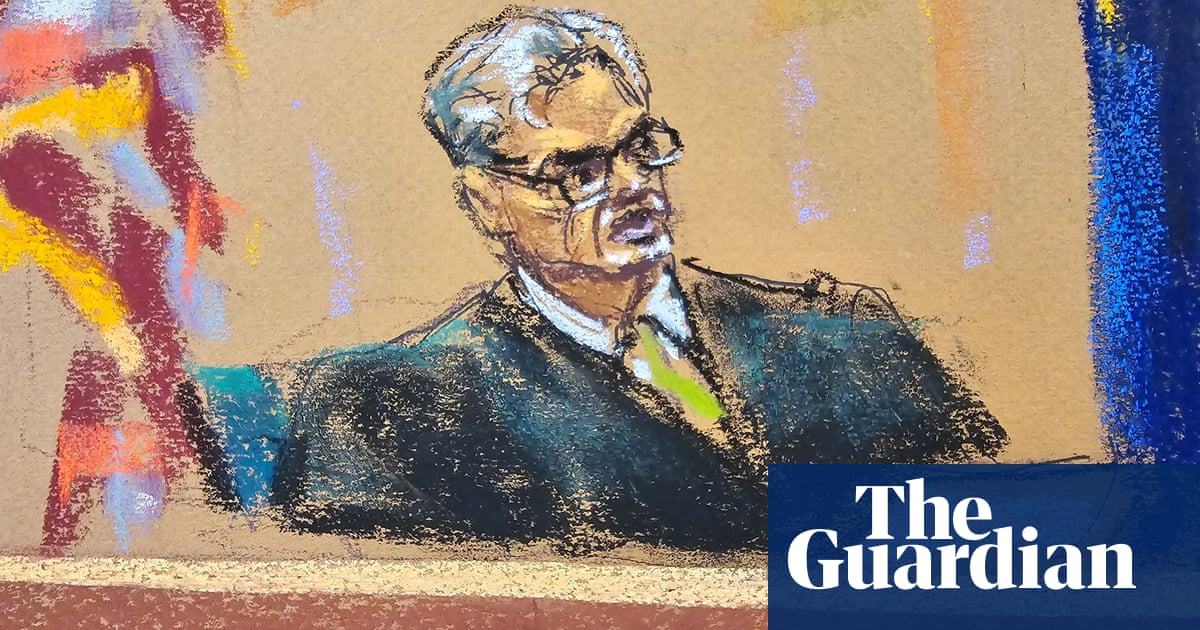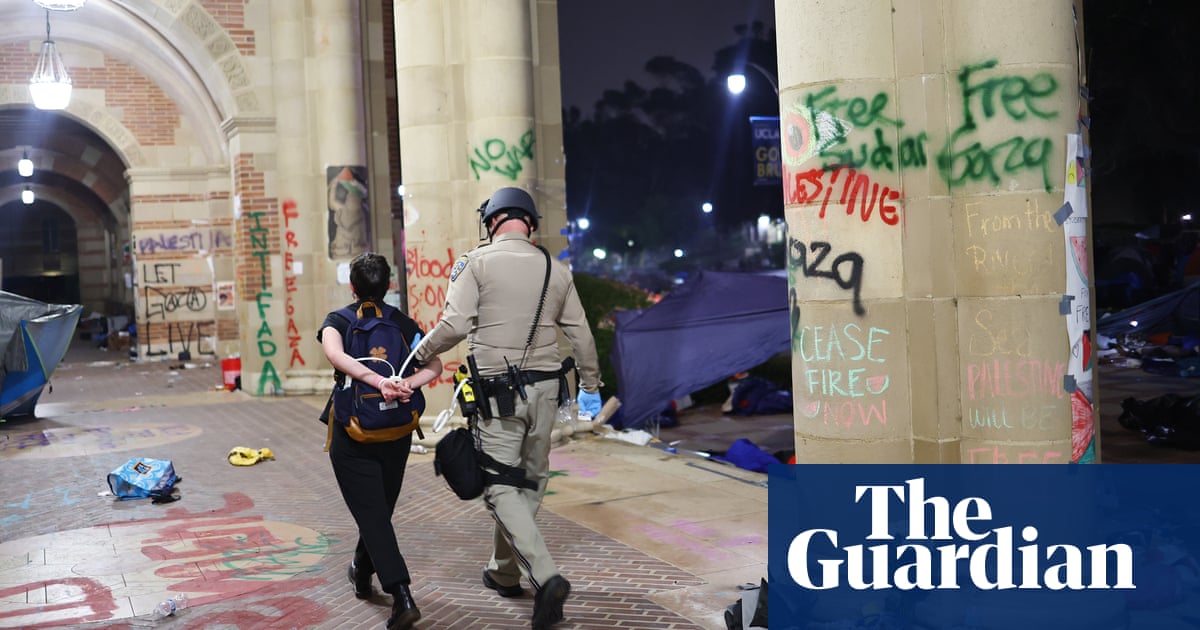Neighbors of Samuel Alito and his wife described how a disagreement over political lawn signs put up in the wake of the 2020 presidential election quickly devolved into “unhinged behavior towards a complete stranger” by the supreme court justice’s wife.
Emily Baden says she never intended to get into a fight with Alito and his wife, Martha-Ann, her powerful neighbors who live on the same suburban cul-de-sac as her mother outside Washington DC.
Then a large black car, part of the Alitos’ security detail, started parking in front of her mother’s house instead of theirs, and Baden understood the perils of being an ordinary citizen going up against one of the most powerful men in the country.
The two sides do not agree on much, but Baden, a staunch liberal, and Martha-Ann Alito, a staunch conservative, concur that they began exchanging words in late 2020, almost two months after Joe Biden’s election victory over Donald Trump. Soon after, according to Baden, the Alitos’ security detail began parking a car directly in front of her mother’s house – several houses down from its usual spots either directly in front of the Alitos or across the street from them.
“This happened a handful of times,” Baden now recalls. “I took that as directly threatening.”
Baden and her husband both say that the security detail’s car showed up in front of her mother’s house again two weeks ago, after the New York Times broke the story about an upside-down American flag hanging on the Alitos’ flagpole in the days before Biden’s inauguration – a symbol associated with the January 6 insurrection that sought to prevent Biden from taking office at all.
Baden was no longer living with her mother by that point – she is now a mother herself and living on the west coast. Neither she nor her mother were mentioned by name in the initial Times story. Still, she found the message that this sent disturbing.
“I couldn’t say who was in the car because of the tinted glass, and nobody ever said anything. I took it as a general threat,” she said. “The message was, we could do terrible things to you, and nobody would be able to do anything about it. When it comes to justices at the supreme court, they make the laws, but the laws don’t apply to them.”
Baden’s husband, who did not want to be identified by name, said he, too, remembered a large black security SUV parking in front of their house, most memorably after Martha-Ann Alito confronted the couple in February 2021 and Baden let an expletive fly at the justice’s wife.
“Right after, a security vehicle moved in front of our house and stayed for the remainder of the night,” he recalled.
The Alitos did not immediately respond to a request from the Guardian for comment.
Baden is an unusual witness to the Alito flag controversy and furore it has unleashed, because she never saw the upside-down flag flying outside the Alitos’ house and did not hear about it until the story hit the headlines two weeks ago.
When the Times first contacted her, she said she didn’t want to be in any story because she had nothing to add. That changed when Alito put out a statement saying that his wife had briefly hung the flag in response to a neighbor’s use of “objectionable and personally insulting language on yard signs”.
Baden realised this was a reference to her. It both incensed and frightened her.
“He’s lying about many, many things in that statement,” she claims. Contrary to Alito’s assertions, she alleged, it was not true that she had initiated any confrontation. She said it was also untrue that her lawn signs were directed personally at the justice or his wife.
In Baden’s version of events, Martha-Ann Alito first approached her to complain about a home-made cardboard sign that said “Bye Don” on one side and “Fuck Trump” on the other – sentiments found on many similar signs around their neighborhood in Alexandria, Virginia, and in the rest of the country.
Alito took further umbrage after January 6 when Baden erected signs that read “Trump Is a Fascist” and “You Are Complicit” – the latter intended, Baden says, as a condemnation of all Trump supporters, not as a message to the Alitos, who had no direct view of it from their house.
after newsletter promotion
The next day, according to Baden, Martha-Ann Alito pulled up in front of their house in her car and glared at her and her partner (now her husband). The security detail started parking outside the house around the same time, and the dispute continued for more than a month, culminating in the swearing incident in mid-February and a police report that the Badens filed right after.
“This was unhinged behavior towards a complete stranger, who had done nothing except put up a yard sign,” Baden charged. “I became truly afraid of what they might do.”
That fear also made her hesitate about agreeing to be named publicly. She knows how quickly people can be vilified when stepping into a high-profile political controversy, and she has thought of Anita Hill, who tried in vain to stop Clarence Thomas being named to the supreme court in the early 1990s, and of Christine Blasey Ford, who testified against Brett Kavanaugh during his confirmation hearings in 2018, also to no avail.
“I was scared for myself, for my mother, for my family, for anyone who shares my last name,” Baden said.
Then news broke of a second flag affiliated with the “Stop the Steal” movement being flown at a second Alito home, and she felt she had no choice but to speak out.
“That other flag sealed the deal for me,” she said. “I thought, if I don’t use my name, I will not be true to myself and my lifelong convictions. I believe in resistance to fascism. My grandpa fought in world war two … he was a person who quite literally fought against fascism.”
Her view of Alito was further coloured by the fact that he wrote the majority opinion in the 2022 Dobbs v Jackson Women’s Health Organization – the decision that overturned Roe v Wade and ended a constitutional right to an abortion. She happened to be in Virginia when the news broke, and participated in street protests outside the Alitos’ home, at which point her signs (and almost everyone else’s) were indeed personally directed at the justice.
Now, she feels compelled to add her voice to the growing calls for Alito to recuse himself from Trump-related cases before the supreme court and is willing to testify before Congress, as Hill and Blasey Ford did before her.
“This story is not about me. I didn’t do anything except put a sign in my front yard,” she said. “The story is that one of the most powerful men in the country showed allegiance to an insurrection … I’m horrified by this behaviour, and want to see at least a modicum of accountability.
“If I’m coming forward, it is to encourage other people to resist. I want to galvanise people and let them know they have the power. It truly gives me chills to think how close we came to a coup, and Christian fascists taking over our country. [But] this is still a democracy.”









